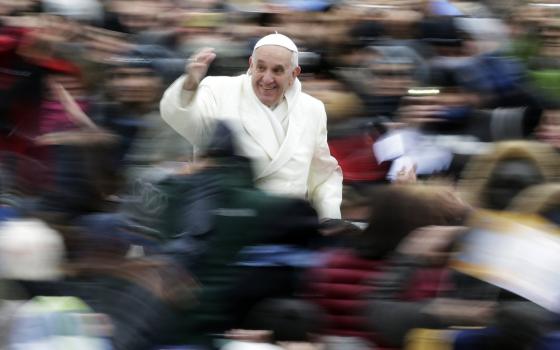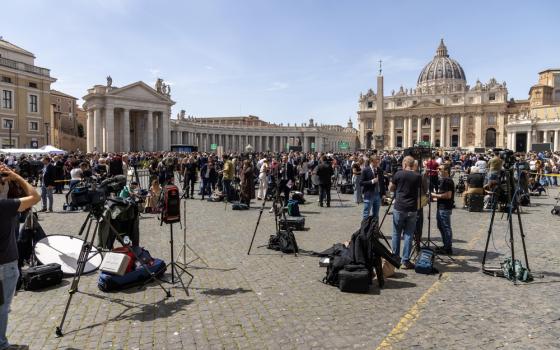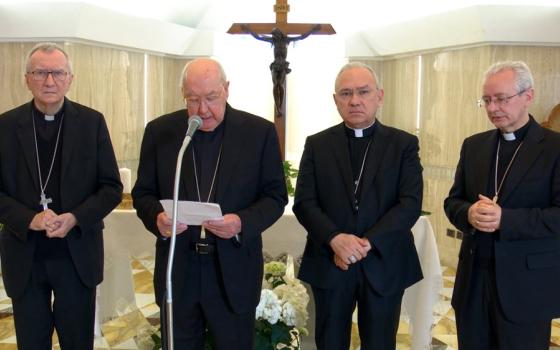WASHINGTON -- The cardinal recently selected by Pope Benedict XVI to play a key role in the October 2012 world Synod of Bishops on the new evangelization told high school religion teachers Oct. 28 that solid catechesis, confidence in the faith and sharing the faith are critical elements to carrying out the work of the new evangelization.
"You are on the front line of the new evangelization -- an effort that mirrors so clearly the work of the early church and the first disciples," said Cardinal Donald W. Wuerl of Washington to a conference of Catholic high school religion teachers as part of High School Principals Association professional development day at a local Catholic high school.
"The new evangelization is not a program. It is a mode of thinking, seeing and acting," Cardinal Wuerl said. "It is a lens through which we see the opportunities to proclaim the Gospel anew. It is also a recognition that the Holy Spirit is actively working in the church."
Pope Benedict named Cardinal Wuerl as the relator, or recording secretary, of the 2012 synod. As recording secretary, he will be primarily responsible for preparing a thematic report for discussion at the opening of the Oct. 7-28 synod and another report summarizing speeches given in the first phase of the synod's general assemblies.
In his address, the cardinal told the religion teachers how important it is that they communicate a confident message of the "offer of an encounter with Christ, an invitation to faith, and another way to live."
He acknowledged the barriers to such an encounter as identified by Pope Benedict XVI -- secularism, materialism and individualism -- but noted, "Increasingly, I find young people who are open to the Gospel message. These are people who find that the world does not have all of the answers, or even significant answers.
"The missionaries in the first evangelization covered immense geographic distances to spread the good news," he said. "We, the missionaries of the new evangelization, must surmount ideological distances just as immense, oftentimes before we ever journey beyond our own neighborhood or family."
The next day at a Mass he celebrated as part of the archdiocese's Multilingual Catechetical Day, the cardinal told nearly 900 catechists and religious education leaders that "part of the challenge of our ministry is to help those entrusted to our care understand that it is in the church that they encounter Christ in his word and in the sacraments. ...
"Too many people have little familiarity with the wisdom of God," he said. "Many have simply drifted away.... Yet there are also positive signs of our young people searching for more. We are experiencing that even in the face of a diminished appreciation or understanding of the content of the faith there is a longing of the human spirit for God."
He called the new evangelization "a new moment for catechesis in our country."
"We live in an age of hope," he said. "This is not a groundless euphoria but, rather, a confidence that God continues to grace the church with opportunities to reach deep within our own lived experience of Jesus to find the practical means to introduce a whole new generation into the knowledge -- into the encounter with the living Lord."



